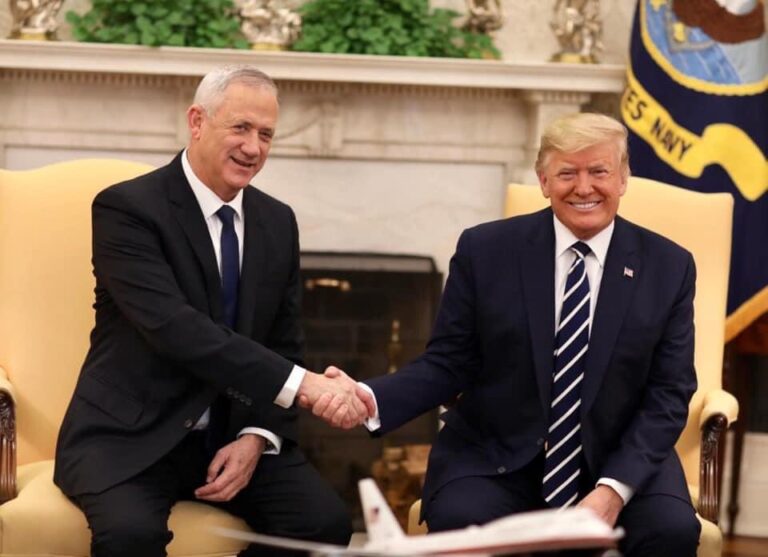Israel’s Supreme Court is not only composed of liberal judges, but it nevertheless manages to silence—or at least hamstring—its justices who lean to the right. One of them is the court’s deputy president, Justice Noam Sohlberg, who has once again found himself in a place of eternal dissent.
Even so, he has the power to bring about change—and for the better. For my Shabbat column in Yedioth Ahronoth, I wrote Sohlberg an open letter, exploring where we stand now, and where he can take us, a translation of which is below.
***
To the Honorable Justice Noam Sohlberg,
Supreme Court, Jerusalem
In recent months, I’ve found myself thinking more and more about the impossible position you are in—isolated at the top, and silent. Presumably, you do not share your views about what is happening in the Supreme Court with anyone. Your social circles are deliberately limited. As a judge should, you avoid public statements and socializing that could create conflicts of interest, except for a few rare forays into the outside world.
A reservist soldier told me at the beginning of the war that he entered the main gate of your community, Alon Shvut, one night and found your honor on guard duty with a gun—as if you have extra hours in your schedule to volunteer. Aside from that, the only extracurricular role you’ve allowed yourself is judging the local cholent competition (quote from the event: “We decided to reject dishes that lacked sparkle and showed signs of lifelessness. In the cholent format, there shall be no compromise”).
I believe that’s the only ruling of yours recently that has been unanimously accepted. They say you have no problem being in the minority opinion, but what troubles you is being consistently the sole dissenting voice. For many long and lonely years, you were the lone conservative voice in a one-sided court. One against fourteen. Former Chief Justice Dorit Beinisch tried to block your appointment to the Supreme Court. You—who are cited far more frequently in law schools than she is—were held back for months due to your place of residence—a settlement in Judea and Samaria—and your differing biography, which did not suit her or her colleagues.
In recent years, change has come to the court. The positions you once expressed now enjoy a (fragile) majority in the Supreme Court. And yet, recently, you once again found yourself in sole dissent. Attorney General Gali Baharav-Miara has issued unprecedented and confrontational legal opinions, some of which you have expressed your criticism of in rulings. But your colleague, Supreme Court President Yitzhak Amit, deliberately selects the one panel where he has a majority to realize his personal worldview: himself, Justice Daphne Barak-Erez, and you.
And so, after 14 years, you find yourself once more in eternal dissent, publishing well-reasoned opinions, launching sharply crafted arrows toward your colleagues, while they continue to charge ahead—Ben-Gvirs with gavels.
Your critics on the right are exasperated by your judicial temperament in action. “If there were a global award for fig leaves, Sohlberg would win it easily,” wrote Ran Baratz in Makor Rishon. “He’s the Anna Pavlova of ‘How lovely you are’ dance routines.” Justice Minister Yariv Levin has already declared that there isn’t a single conservative judge in the entire Supreme Court.
They fail to grasp your consistent line: reverence for the noble profession of judging. In a world where the law has long since become a political weapon and pens are beaten into swords, you insist on ruling according to the law and logic, not performing sycophantic routines, nor dancing to anyone’s tune. You speak through rulings, not through speeches at the Bar Association while hearing petitions from it—as your colleague Amit did this week.
That’s why you struck down Netanyahu’s third apartment tax law due to a flawed legislative process, and that’s why you harshly criticized the government’s dismissal of Shin Bet chief Ronen Bar. A good judge rules according to the law and often surprises people with their rulings. Your colleagues have not surprised anyone in quite some time.
I am quite convinced that your battle is principled, not personal. Case in point: when you had the chance, with a single vote, to block the appointment of Yitzhak Amit as President and appoint yourself instead for eight years, you arrived with your walking stick and satchel and voted in his favor, out of respect for the rules and the principle of seniority. “I feel embarrassed that I need to serve as a character witness for Judge Amit, going back to his military service… His excellence has proven itself for many years,” you said during the discussion in which he was appointed. Still, allow me to assume that you would not have found yourself in the conflicts of interest he has allowed for himself.
And so, even though this is not personal, I feel compelled to warn you of the possibility that your colleagues will be less respectful of the rules when your time comes, in 2028, to be appointed Supreme Court President. Someone who trampled Basic Laws by a single vote after his official term had ended might also trample the seniority principle without batting an eye.
“Substantive democracy isn’t majority rule,” Amit mocked recently in a meeting with young Israelis. “That’s fourth-grade democracy.” At the same time, he artificially manufactures an even narrower majority—just a single vote—while silencing other voices on the Supreme Court. In a mini-court he has created for himself, not only are the government and Knesset silenced, but so is most of the judiciary: eight other judges, most of them conservatives, are not assigned to panels, while the convoy races forward with only one car signaling in the opposite direction.
Thus Amit can overturn a ruling of his own regarding the appointment of the Civil Service Commissioner and turn it into a substantial ruling on the government, in direct contradiction to the letter of the law. While lamenting the loss of the public norm of “It is not done,” he himself violated it, with Barak-Erez, in a ruling whose reasoning reads like a Knesset speech. “It is a great rule not to stir up unnecessary disputes,” you wrote last week, but your two colleagues insisted on issuing a ruling on the Shin Bet chief, even though he himself did not petition the court.
And here is the difficult question: does sticking to the rules of the game while everyone around you breaks them help the game—or harm it? Does it promote public trust in the judiciary—or accelerate its internal collapse? The current descent, in which the attorney general invents unprecedented legal opinions that your two colleagues adopt without foundation, will lead to the destruction of the court and bring the country to the brink. It cannot be that the compromises you constantly push for are blocked by technical maneuvers from an alliance of just three people.
The adjudication of issues of the highest moral weight by abusing the president’s authority, through the narrowest possible panel, is a textbook case of abuse of power. That’s why writing your opinions in increasingly sharp and bitter tones will be in vain. They will change nothing, because this is no longer a legal debate but an attempt to reshape the country. It’s not that Amit doesn’t understand—he just probably doesn’t care. Just as he didn’t care when Justice Yosef Elron warned the other day that the damage caused by aggressive rhetoric seeping into the Supreme Court is immense.
Fate has it that in a country increasingly devoid of consensus, you remain one of the only figures (perhaps aside from Idan Amedi) respected by both camps. Even President Herzog is vilified when receiving an honorary doctorate, but when you clarified—at the height of the 2023 rift—what a reasonable unreasonableness clause should look like, everyone listened closely.
They will listen again now, if you make it clear—politely but unequivocally—that this cannot continue. That you will no longer agree to be cast as the voice crying out in the wilderness. That it is inconceivable to decide fateful matters in a panel usually reserved for appeals on tax liability.
There are others waiting for the cry you might raise. I believe you will not be alone. The time has come to foster unity, to encourage compromise, to help the sides climb down from the tree, rather than plant trees of discord like your two colleagues. If you do not act—the deterioration will continue.
You mustn’t shout in a library—but if there’s a fire, you shout. A cool judicial temperament is a blessing, but you know well what the Sages thought about the limits of restraint, and how the humility of an ancient judge, Yohanan ben Zakkai, who insisted on maintaining composure in a critical moment, led to the destruction of the Temple.









